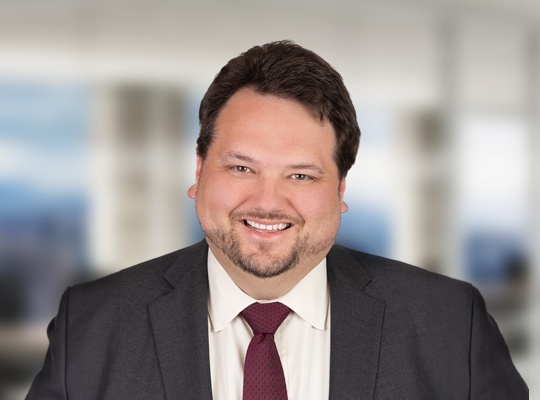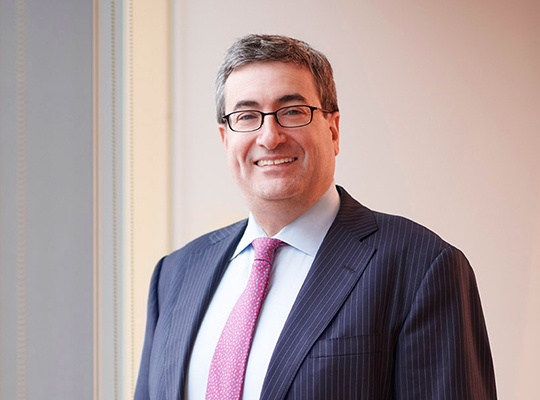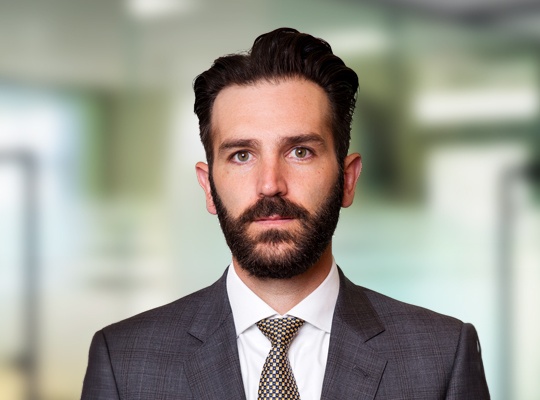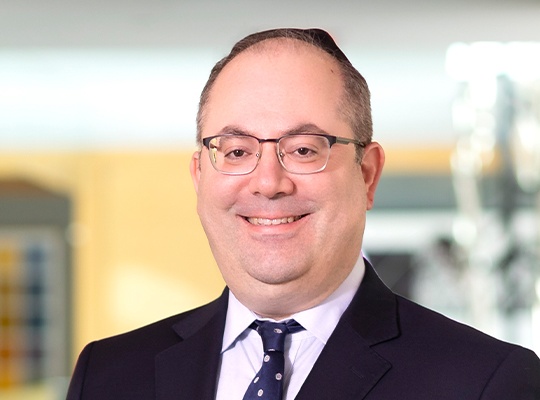Delaware Court of Chancery Finds Tesla’s Acquisition of SolarCity “Entirely Fair”
Key Takeaways
- Entire fairness review, though onerous, can be satisfied, particularly where market evidence and a disinterested stockholder vote indicate a fair price was paid.
- An imperfect deal process can still be adequate for satisfying entire fairness if there are significant indicia of fairness, such as an unconflicted director leading negotiations, evidence of the board withstanding pressure from a controlling stockholder, and disinterested stockholder approval of the merger.
- While entire fairness can still be shown in a conflicted transaction, boards should employ appropriate procedural safeguards to invoke the business judgment rule, thus avoiding lengthy, expensive litigation.
* * * * *
The Delaware Court of Chancery issued its decision in In re Tesla Motors, Inc.,1 on April 27, 2022, rejecting claims that Tesla, Inc. CEO Elon Musk breached his fiduciary duties to Tesla’s stockholders as a director and an allegedly controlling stockholder of Tesla in connection with its 2016 acquisition of SolarCity Corporation (the “Acquisition”). In his 132-page opinion, Vice Chancellor Joseph R. Slights III held that, even assuming Musk was a controlling stockholder and the strict standard of entire fairness applied to the Acquisition, the Acquisition’s price and process satisfied that standard, thereby negating any liability for Musk.
The Tesla decision thus highlights that despite the onerous burden placed on defendants having to satisfy entire fairness review, a corporate board attentive to its duties—even if conducting a less-than-perfect process—can nonetheless establish that a disputed transaction was entirely fair to the stockholders. This OnPoint reviews the most pertinent aspects of the decision relating to the entire fairness analysis.
Background
At the time of the Acquisition, Elon Musk was the Chairman, CEO and 22% stockholder of Tesla, and the Chairman of the Board and the largest stockholder of SolarCity, holding approximately 21.9% of its common stock.2 In February 2016, Musk first suggested to the board of directors of Tesla (the “Board”) that it make an offer to acquire SolarCity, a suggestion that the Board rebuffed.3 At Musk’s urging, the Board held further discussions over a possible acquisition of SolarCity in the ensuing months, but only determined to proceed with an offer on May 31, 2016.4
Following three weeks of internal deliberations with financial and legal advisors, the Board decided to make an initial offer to purchase SolarCity, proposing stock consideration at an exchange ratio that represented a premium of 21% to 30% over SolarCity’s trading price at the time, conditioned on approval of a majority of disinterested SolarCity and Tesla stockholders.5 After a period of due diligence and discovery of SolarCity’s cash issues, the Board decided to lower its offer.6 The merger agreement for the Acquisition was executed on July 31, 2016.7 The consideration, based on Tesla’s trading price, was valued at US$2.6 billion at signing, though by closing had fallen to US$2.1 billion in value, representing no premium for SolarCity.8
Tesla stockholders filed suit against the Board and Musk.9 In March 2018, the Court of Chancery denied the defendants’ motion to dismiss, finding it reasonably conceivable that Musk, as CEO, Chairman, 22.1% stockholder, and having “outsized influence” over Tesla and its stockholders, was the controlling stockholder of Tesla for purposes of triggering entire fairness review.10 Before trial, Plaintiffs settled with all Tesla Board members except Musk.11 Trial was held on Plaintiffs’ claims against Musk for breach of fiduciary duty, unjust enrichment, and affirmative waste.12
The Post-Trial Decision
As a matter of judicial economy, the Court avoided numerous issues of Delaware law going to the appropriate standard of review. Instead, the Court opted to assume that the Acquisition was subject to entire fairness review, and then analyzed Plaintiffs’ claims under that standard.13 The Court further held that even if Musk bore the burden of proving that the process and price of the Acquisition were fair, he would still prevail.14
Fair Process
The Court found that the balance of evidence showed that the Board had conducted the Acquisition through a fair process.15 The Court highlighted that the Board had conditioned the Acquisition on its approval by a majority of disinterested stockholders of Tesla, relied on the advice of independent, top-tier financial and legal advisors, and required Musk and another Board member to recuse themselves from the final decision-making on price and from voting on the Acquisition.16 In addition, the material aspects of the Acquisition were known to Tesla’s stockholders, the market, and the Board.17 Finally, an indisputably independent member of the Board led the due diligence and negotiation processes, resulting in a substantially lower Acquisition price—which the Court called “strong evidence of fairness.”18
The Court nonetheless noted what it perceived as significant flaws in the Acquisition process. The Court criticized the Board’s failure to form a special committee of independent directors—even a committee of one—to manage the transaction process.19 The Court also noted that Musk was allowed “to participate in the deal process to a degree greater than he should have been.”20 The Court further mused that, had Musk and the Board “adopted more objectively evident procedural protections,” they could have proven their entitlement to a less stringent standard of review and altogether avoided the “unnecessary peril” of entire fairness review.21 But ultimately, the Court was satisfied that the Board was not “dominated” by Musk, as evidenced in particular by the Board’s willingness to rebuff Musk’s recommendations for Tesla to acquire SolarCity in February 2016, to decline to extend SolarCity a bridge loan together with its Acquisition proposal, and to refuse to expedite the due diligence process despite Musk’s insistence.22 Finally, each member of the Board demonstrated their active engagement in the process by credibly testifying as to how the Acquisition furthered Tesla’s longstanding mission to become a vertically integrated alternative energy company.23
Fair Price
In a finding that was an easier call than its finding that the deal process had been fair, the Court held that Tesla paid a fair price to acquire SolarCity.24
A number of factors contributed to the Court’s finding that the price of the Acquisition was fair. The Court flatly rejected Plaintiffs’ contentions that SolarCity was worthless at the time of the Acquisition, instead finding the company was solvent and “never close to bankruptcy.”25 The Court was also satisfied by evidence proffered at trial that the market was “sufficiently informed to reach a reliable assessment of SolarCity’s value,” further supporting that the price Tesla paid was entirely fair.26 The Court also credited the fairness opinion provided by Tesla’s financial advisors, which found that the Acquisition was fair to Tesla’s stockholders.27 The Court further took note of the “astronomic rise” in Tesla’s post-Acquisition stock price as evidence of the price paid for SolarCity was fair, suggesting in hindsight that the Acquisition held significant synergistic value for Tesla.28
Last and most important, the Court emphasized that the Acquisition had been approved by a majority of disinterested stockholders—“compelling evidence that the price was fair.”29 Accordingly, and in light of the fact that “a patently fair price ultimately carries the day,”30 the Court found that Musk’s defense passed the entire fairness standard of review and entered judgment for him on all claims.31
Takeaways
The Tesla decision shows that the entire fairness standard, while exacting, can be satisfied by corporate directors and other defendants facing litigation over their conduct in connection with a conflicted transaction. The decision identifies several factors particularly valuable to the entire fairness analysis that corporate directors should keep in mind:
- The material influence of independent, outside specialists. The Tesla Board’s reliance on insight from top-tier, independent financial and legal specialists was key in convincing the Court of its independence and thus the entire fairness of the Acquisition.
- Meaningful rejections of a conflicted board member’s influence. While disapproving of Musk’s influence on the Acquisition process, the Court found that the Board’s rejection of Musk’s overtures regarding the Acquisition’s timing, the pace of due diligence, and deal conditions were indicia of a “fair process.”
- Adherence to a thoughtful procedure. Despite the Court’s admonishment that additional procedural safeguards should have been employed, it found reassurance in the fact that an independent director led the due diligence and negotiating processes, and that disinterested stockholders were vested with the authority to make an informed decision to approve the Acquisition.
- Paramountcy of fair price. The Tesla decision emphasizes that a fair price can overcome potential shortcomings in the process toward an ultimate finding of entire fairness, with a transaction conditioned on the approval of disinterested stockholders being powerful evidence of the fairness of the price.
- Procedural safeguards can avoid costly litigation. Notwithstanding the victory for Musk, boards of directors in conflict situations are well-advised to avoid the expense and risk of lengthy litigation by implementing appropriate procedural safeguards, including but not limited to, the formation of a special committee of independent directors to conduct negotiations. Such procedural safeguards could have the effect of providing the protection of the business judgment rule, thereby enabling a pleading stage dismissal of a stockholder complaint.
Footnotes
- C.A. No. 12711-VCS (Del. Ch. Apr. 27, 2022).
- Id. at 6-7.
- Id. at 31.
- Id. at 38.
- Id. at 43.
- Id. at 54.
- Id. at 55.
- Id. at 56.
- Id. at 2.
- In re Tesla Motors, Inc. S'holder Litig., 2018 WL 1560293, at *13-19 (Del. Ch. Mar. 28, 2018)).
- Slip op. at 69. The claims were settled for $60 million, funded by insurance. Id.
- Id. at 70-71.
- Id. at 4.
- Id. at 85.
- Id. at 90.
- Id. at 95-97.
- Id. at 100-01.
- Id. at 97, see also id. at 101.
- Id. at 90-91.
- Id. at 91; see also id. at 91-94.
- Id. at 86-87.
- Id. at 95, 97-98.
- Id. at 99, see also id. at 99 n.444 (providing quoted testimony from members of the Tesla Board).
- Id. at 105.
- See id. at 107-09.
- Id. at 112-114.
- Id. at 120.
- Id. at 126-27.
- Id. at 116-17 (citing ACP Master, Ltd. v. Sprint Corp., 2017 WL 341142, at *29 (Del. Ch. July 21, 2017)).
- Id. at 72.
- Id. at 128.





